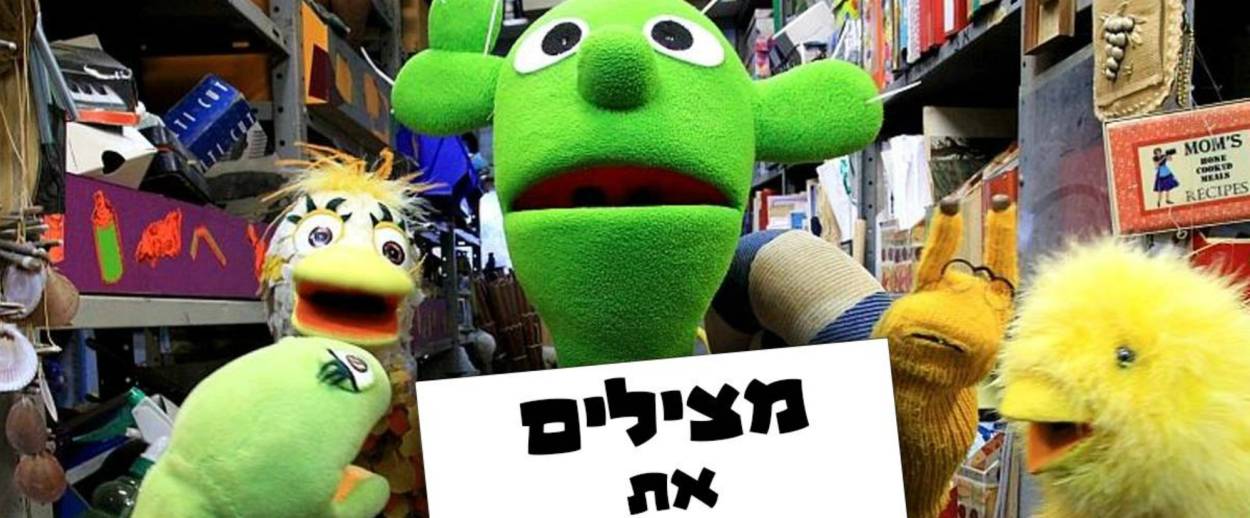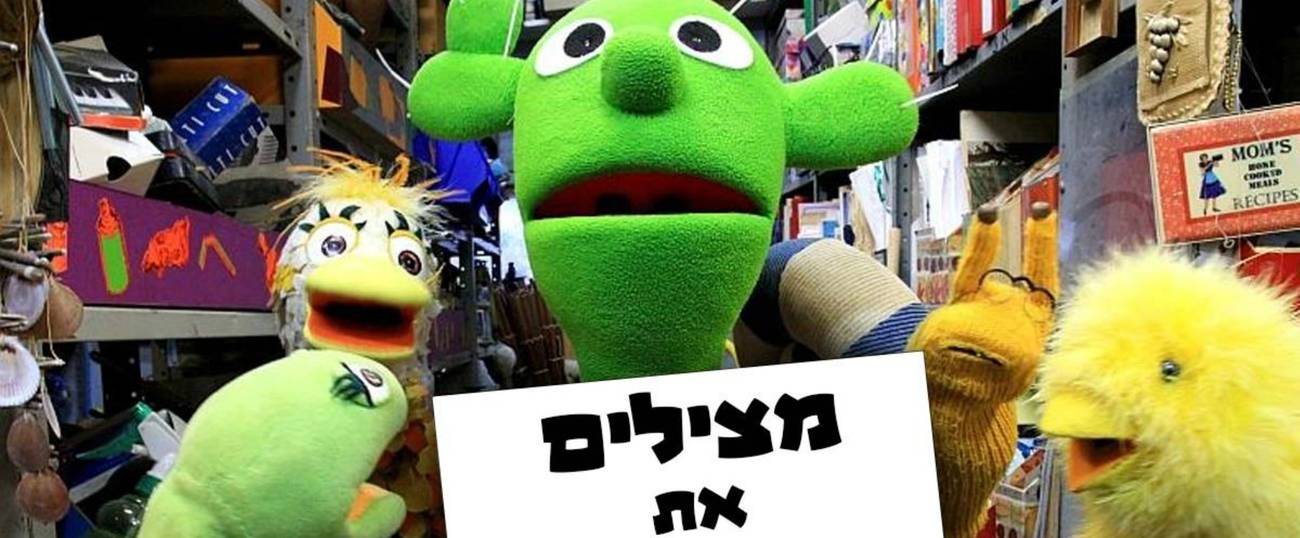Israel’s Educational TV Shuts Down for Good
A cheerful and unsentimental lesson in the might and magic of the free market




I’m not one for squishy sentiments. As a kid, watching Bambi’s mom meet that nice hunter inspired nothing more in me than a faint hunger and fond thoughts of venison. As an adult, I chortle at This Is Us. I do get weepy whenever I watch Brewster’s Millions, but that involves the squandering of a significant amount of money, an objectively sad turn of events. For anything else, count me unmoved. And yet, even a crusty curmudgeon like myself felt something swirling in the stomach this month when Israel announced that it will shut down its state-sponsored educational TV broadcasting come Aug. 1.
Considering the usual tenor of the news out of Israel, the decision may seem trivial. But to those of us who grew up on the Educational, as it is fondly known, word of its imminent demise arrived like a herald announcing that our collective childhood was now definitively over. We grew up, all of us, with precisely one TV channel to choose from, and, for about half the day, that channel was dominated by the Educational. When we came home from school, it was to whatever lunch our parents left for us in the fridge and to whatever entertainment the Educational showed us on the small screen.
If I were any more sentimental, I’d tell you about all the wonderful shows that gave me so much joy and comfort. I’d write lovingly about Nice Butterfly, say, where kind adults and chipper puppets talked you through the small but significant problems that your parents never had the time or the patience to address. I’d wax poetic on Neighbors, in which American-born Israeli accents taught you the rudiments of English while traipsing around a street that looked much more like suburban Chicago than suburban Ramat Gan. And I’d definitely talk your ear off about Zehu Zeh, the sketch comedy show whose stars were for us what George, John, Paul, and Ringo had been for our parents. The Educational not only kept me occupied and amused, but also assured me, a small boy in a small country, that the world outside was big and thick with possibilities. For this, I’m endlessly grateful. And yet, this touch of tenderness aside, it’s hard to see the Educational’s expiration as anything but a necessary step, as well as one with an educational message for anyone contemplating the merits of government-sponsored entertainment.
To understand why, just review the history of Israeli TV in the last two decades. In November of 1993, the state’s first commercial channel, Channel Two, went on-air, joined shortly thereafter by a torrent of other broadcasters on cable and on satellite. And if you’ve ever watched Fauda, say, or Homeland, or In Treatment, you know what happened next: Israeli TV, despite serving a tiny market, became a juggernaut, exporting its shows and concepts to audiences the world over.
How did that happen? The answer will be jarring to those who believe that culture thrives best when fed by federal funding, but it’s simple nonetheless, and it has to do with the free market. Released from the shackles of bureaucracy, creative and talented people could make the shows they wanted to make.
In a world governed solely by the Educational, for example, someone like Giora Chamizer would’ve been relegated to making sweet and slow fare about whatever it was the tenured officials in the Ministry of Education thought kids ought to know. But Chamizer, a very talented writer, started out in an industry brimming with possibilities, and he went on to create a host of wildly popular dramas for teens, some of which, likeGreenhouse Academy, have been bought and adapted by Netflix. He’s hardly the exception: With several separate commercial channels now dedicated to children, Israeli TV offers a wealth of content that would’ve made us wide-eyed kids of the single-channel era swoon.
Of course, none of that impresses the Educational’s mandarins. Faced with the threat of extinction, they argued that their swollen budget, $53 million annually, was justified because, well, there may be many shows for children available now but none of them are as wholesome and beneficial as the programming of old.
Even if you believe that the government should be in the business of entertaining your children, it’s a very difficult claim to support. The Educational’s shows were undoubtedly educational and admittedly lovely, but they projected a scrubbed version of reality that did us kids no favors. Growing up staring at the screen, it was possible for children of the 1980s to believe that Israel was a place where everyone got along and no one was discriminated against because of their gender or their country of birth. Watch the popular drama for teenagers Alifim today, on the other hand, and you’ll see entire storylines devoted to the animosity between Ashkenazi and Mizrachi Jews, a tension that shaped much of Israeli history in the first five decades of the country’s existence. And on The Kids From Napoleon Hill, a middle-grade detective show, you’ll meet a major character who’s a homeless Russian immigrant, hardly the sort of chap you’d ever see on Neighbors with its anesthetized view of a world where everyone is smiling and bursting into song about proper grammar. These new shows succeeded because they acknowledged what their young viewers already implicitly knew: that the world around them is rich and strange and complicated, and that there was nothing more thrilling than opening oneself up to its risks and its wonders in a way the Educational never could or would permit.
Richly satisfied by the wealth of programming available to them, Israelis raised their eyes from the screen just long enough to bid the Educational a heartfelt farewell. It deserves all of our love, and its employees deserve all our sympathy. But as its own history proves, TV, like life, is best when unfettered.
***
Like this article? Sign up for our Daily Digest to get Tablet Magazine’s new content in your inbox each morning.
Liel Leibovitz is editor-at-large for Tablet Magazine and a host of its weekly culture podcast Unorthodox and daily Talmud podcast Take One. He is the editor of Zionism: The Tablet Guide.